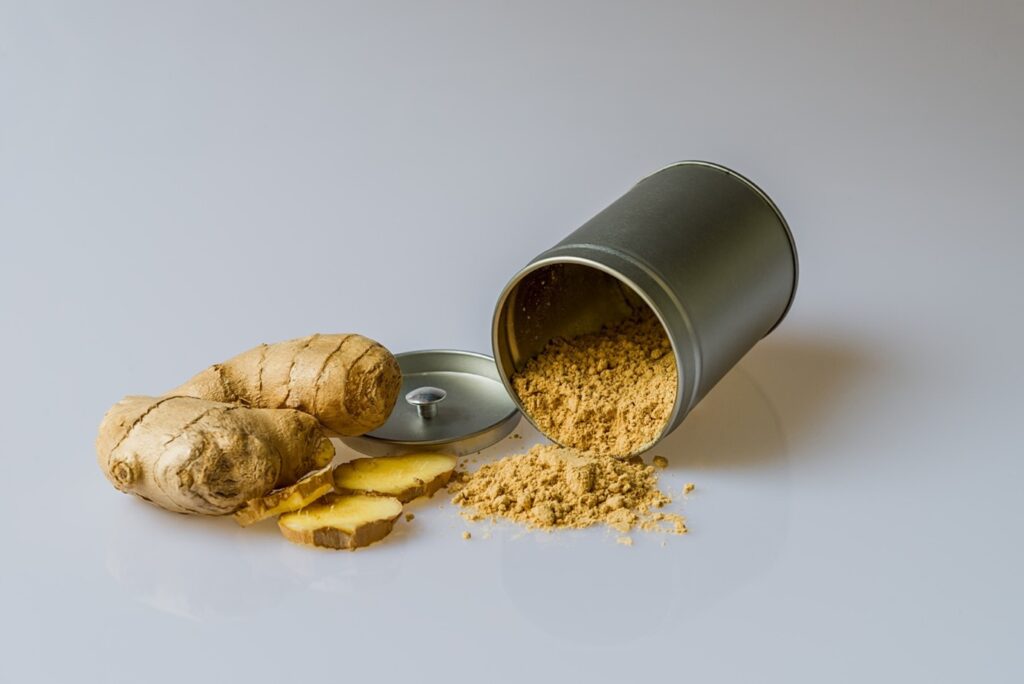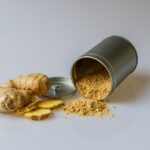You want to know about the health benefits of ginger? Continue reading this post to find out.
What is Ginger?
Ginger (Zingiber officinale) is a flowering plant which originated in Southeast Asia. India is the largest producer of ginger in the world. Ginger is a common spice and of the family Zingiberaceae. Tumeric, cardamom and galangal also belong to this family of spices.
The underground part (rhizome) of the ginger plant is what is referred to as ginger root.
Ginger can be used fresh, dried, powdered or as a liquid for medicinal or culinary purposes.
The Health Benefits
The main bioactive compound in ginger root is gingerol. This compound gives ginger its powerful anti-inflammatory and anti-oxidative properties.
- It helps to treat inflammation and reduces oxidative stress.
- Helps treat migraine headaches.
- Aids in treating nausea, morning sickness and motion sickness.
- Reduces muscle soreness.
- It reduces bad cholesterol levels and blood sugar levels so it reduces the risk of cardiovascular disease and cardiovascular accidents.
- Reduces menstrual pain.
- Aid in treating bloating and indigestion.
- Can help to treat inflammatory gum diseases like gingivitis and periodontitis.
- Help to improve brain function and protect against Alzheimer’s disease.
- Cancer fighting properties due the bioactive compound gingerol which result in cell death and prevents multiplication of cancer cells.
One potential caution in using ginger
Ginger root has a blood thinning effect. Persons on blood thinning meds and pregnant women should avoid ginger containing products like ginger tea or ginger syrup.
The safe daily recommended amounts of ginger in these persons at risk are 1 teaspoon (5mls) of freshly grated ginger, 2mls of liquid ginger extract, 2 teaspoons (10mls) of ginger syrup or 4 cups (946mls) of ginger tea.
Ways to add ginger to your diet
- Brew ginger tea ginger tea recipe.
- Add grated fresh ginger to soups or salad dressings.
- Blend fresh ginger into smoothies or juices.
- Add fresh ginger to stews, curries or sautéed with veggies like onions, tomatoes, sweet peppers.
- Ginger powder can be added to baked goods likes cakes, cookies or muffins.
- Make fresh ginger juice.
The nutritional profile for 100 grams of fresh ginger root:
- Calories – 79 calories
- Carbohydrates – 17.86 g
- Dietary fiber – 3.6 g
- Protein – 3.57 g
- Sugar – 0 g
- Sodium – 14 mg
- Iron – 1.15 g
- Vitamin C – 7.7 mg
- Potassium – 33 mg
Other nutrients found in ginger in lesser quantities include zinc, Vitamin B6, magnesium, folate, phosphorus, riboflavin, and niacin.
Ginger is a great addition to one’s daily diet due to its many health benefits.
If you liked this post, don’t forget to pin it on Pinterest and subscribe for more great posts.




